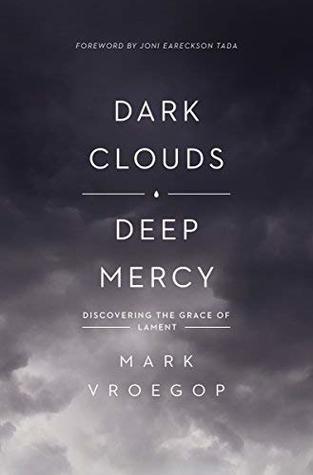More on this book
Community
Kindle Notes & Highlights
by
Mark Vroegop
Read between
February 13 - February 18, 2024
Finding an explanation or a quick solution for grief, while an admirable goal, can circumvent the opportunity afforded in lament—to give a person permission to wrestle with sorrow instead of rushing to end it. Walking through sorrow without understanding and embracing the God-given song of lament can stunt the grieving process.
Lament is how you live between the poles of a hard life and trusting in God’s sovereignty.
Lament is the honest cry of a hurting heart wrestling with the paradox of pain and the promise of God’s goodness.
Christians affirm that the world is broken, God is powerful, and he will be faithful. Therefore, lament stands in the gap between pain and promise.
Lament can be defined as a loud cry, a howl, or a passionate expression of grief. However, in the Bible lament is more than sorrow or talking about sadness. It is more than walking through the stages of grief. Lament is a prayer in pain that leads to trust.
Lament typically asks at least two questions: (1) “Where are you, God?” (2) “If you love me, why is this happening?”5 Sometimes
You might think lament is the opposite of praise. It isn’t. Instead, lament is a path to praise as we are led through our brokenness and disappointment.6 The space between brokenness and God’s mercy is where this song is sung. Think of lament as the transition between pain and promise. It is the path from heartbreak to hope.
Honestly praying this way recognizes that pain and suffering often create difficult emotions that are not based upon truth but feel true, nonetheless.
Lament is how we learn to live between the poles of a hard life and God’s goodness.
No one taught you how to cry. Tears are part of what it means to be human. But to lament is Christian. It is a prayer of faith for the journey between a hard life and God’s goodness. We need to learn to lament. Through the tears, the first step is to turn to God in prayer.
Lament is the language of a people who believe in God’s sovereignty but live in a world with tragedy.
“Savannah, we don’t know why the Lord decided to take Sylvia. His plans are mysterious. But we know the Bible says all his ways are for our good. So, there’s a really good reason, and we’ll know it someday. For now, we can trust him. But also, Sylvia died because we live in a fallen world affected by sin. Her death and our sadness remind us that we need Jesus to come and make everything right.”
It was the day after the national election, and ballot initiatives sent a shocking message. Three states overwhelmingly approved the legalization of same-sex marriage. The people of Maryland, Maine, and Washington—from both coasts—affirmed a fundamental redefinition of marriage in the United States. Meanwhile, voters in Minnesota rejected a traditional marriage amendment to their constitution. What’s more, two states approved the recreational use of marijuana. The moral tide in the United States had shifted. The election made that clear.
Shockingly, Indiana ranks as the second worst state in the country for instances of sexual assault of high school–aged girls. We have a growing problem of child sexual abuse all over our state, often that goes unreported for years. Sex-trafficking, a problem we often think about on the other side of the world, is happening right here in Indiana. And the average age of a victim is twelve to fourteen years old.
The culture of the United States is enamored with optimism. The “American Spirit” is the deeply rooted belief that life will get better, recessions will end, opportunities will abound, and “the sun will come up tomorrow.” While I appreciate this optimism at one level, I wonder how many American Christians make cultural optimism an idol. Or how many directly connect this optimism to the belief that we are “blessed by God.” Perhaps this is partly why some Christians react negatively to the effects of our exile status. It seems that we are unfamiliar with spiritual survival in a culture where a
...more
We tend to hush the recitation of sorrow. However, restoration doesn’t come to those who live in denial.
While writing this book, I spent some extended devotional time in the lament psalms. I started to memorize Psalm 86. Additionally, I printed out one lament a day and marked up the text as I looked for the four elements (turning, complaining, asking, and trusting). The thematic framework became like 3-D glasses, allowing life lessons and applications to emerge out of passages I’ve read many times. Once you start reading the Bible this way, especially the Psalms, you’ll find them speaking into loneliness, frustration, fear, mistreatment, and injustice. At the same time, they’ll give
...more
When you are living in the land for which a third of the Psalms were written, it’s important for you to know how to lament alone. I want to encourage you to embrace the loneliness. Now, I don’t mean a gritty, resigned posture. Rather, I mean for you to practice private lament such that you can give a lot of grace to the rest of the world that isn’t living with your pain.
A little girl I never knew started a lifelong journey in lament. A stillborn daughter broke my heart but gave me new eyes to see the world. Lament became my life and a means of grace to my soul. It opened my heart to lessons I never expected. It drew me into depths of worship I never knew existed. That’s my journey. And wherever you are in yours, I invite you: keep lamenting. In dark clouds there is deep mercy as we discover the grace of lament.


